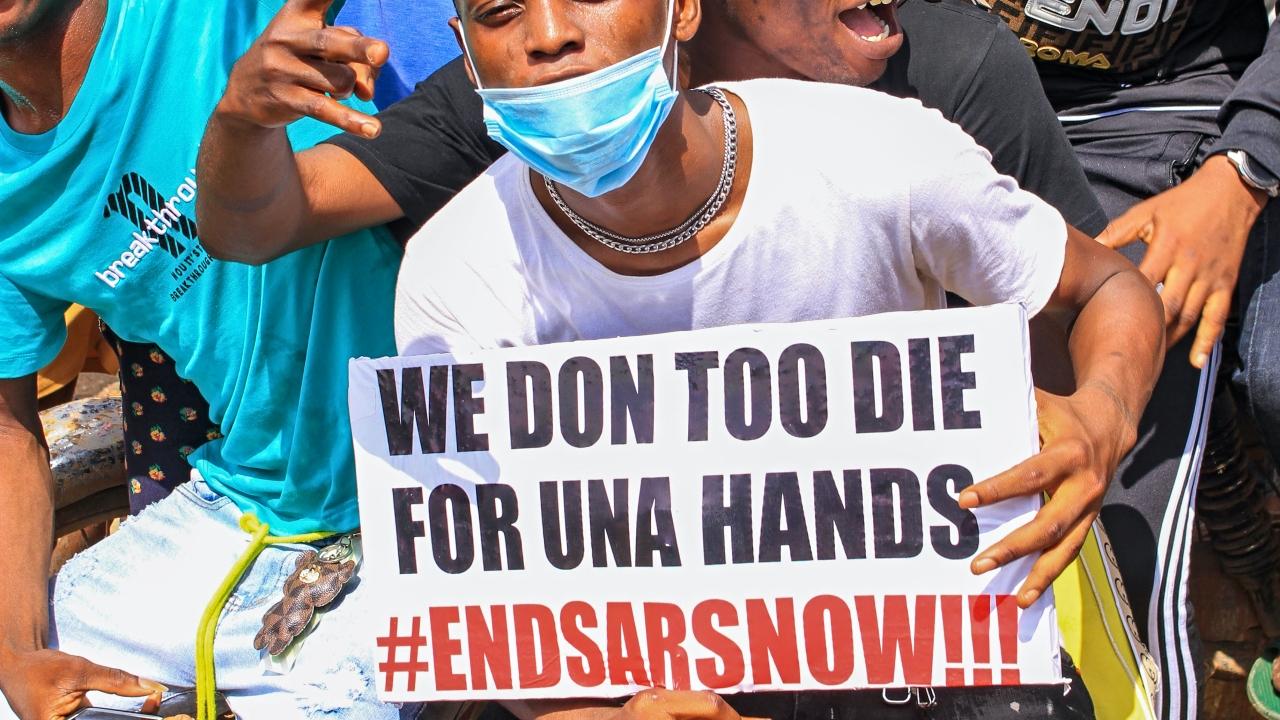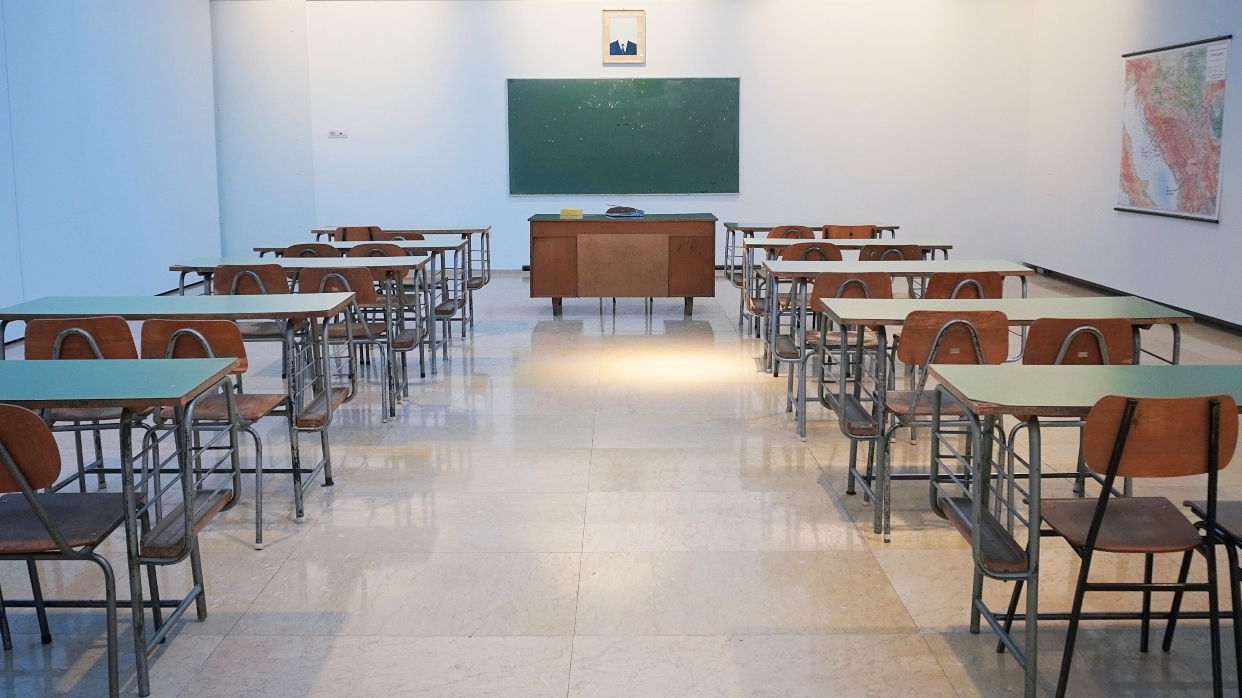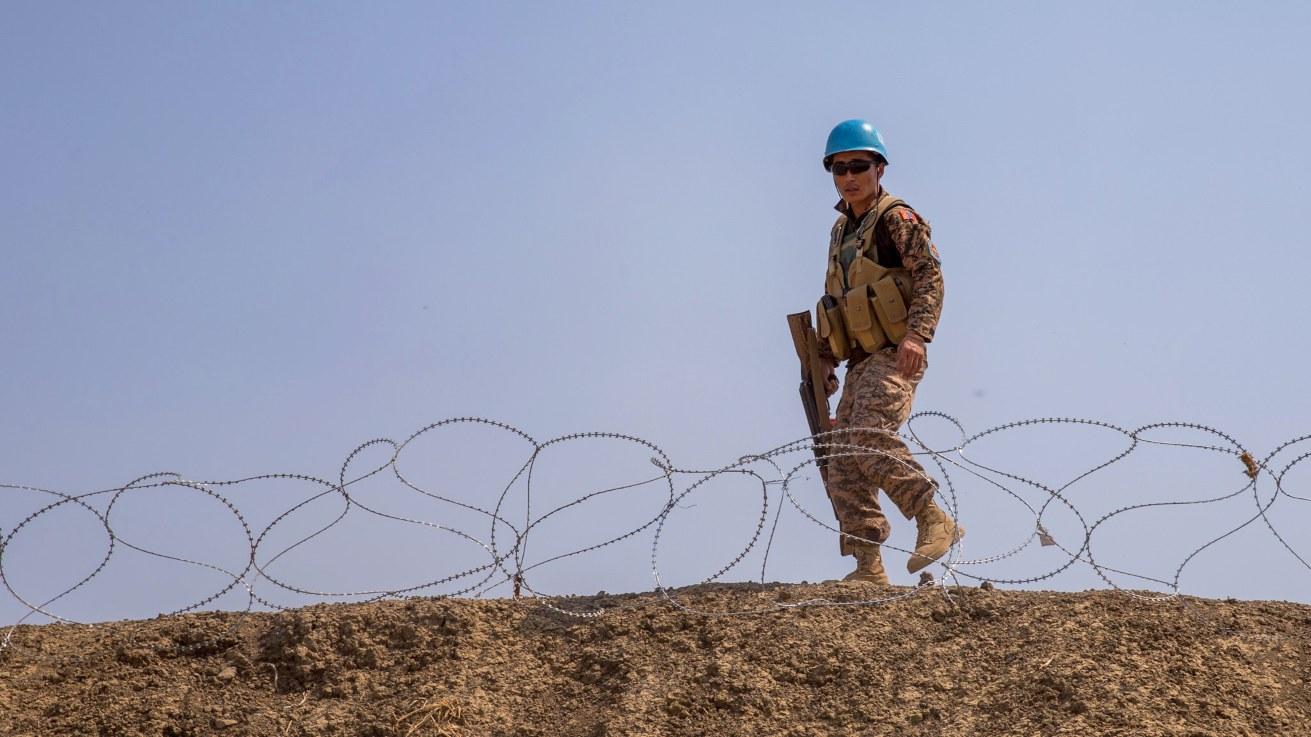As part of the 60th anniversary of Nigeria’s independence, attention has focused on reviewing Muhammadu Buhari’s second and final tenure as President. With a steady decline in trust from citizens and mounting criticism of non-performance, FLCA fellow Dr Uche Igwe suggests that Nigeria’s President can compensate for his failing policies, especially on anti-corruption, by accelerating electoral reforms.
In Nigeria, as elsewhere in the world, there appears to be a steady decline of trust in democracy and democratic institutions. In the past there have been conversations that many democracies in Africa, like Nigeria, have not been sufficiently deepened or consolidated. These conversations amplified the debate about democratisation at a time when some western democracies were perceived to be the model from which others should take ingredients to flavour their own. However, things have changed – or are changing – as such assumptions are being challenged, especially with the United States under the excesses of Donald Trump and the Brexit controversy whose consequences brew in the United Kingdom. It is becoming at best misleading or, at worst, fruitless for countries to continue to look towards the West for ‘models’ of democracy to copy.
However, there are those who call for a more contextual approach that seeks to jettison this antiquated copy and paste prescriptive approach. Do countries like Nigeria offer useful insight? The promise of democracy is to guarantee freedom of expression, spread prosperity and other democratic dividends that allow the majority to have a sense of participation and inclusion. In Nigeria, under Buhari, this does not appear to be the case. Rather, these benefits are said to circulate among a select few members of patronage and clientelistic networks, while the democratic space appears to be gradually shrinking.
Until deliberate efforts are made to reverse this trend, it is difficult to justify the benefits of democracy in Africa’s most populous nation, especially if it is juxtaposed with the cost. Across all arms of government under President Buhari, footprints of democratic authoritarianism have led to regular elections, which while deemed legal have resulted in outcomes that did not exactly reflect the legitimate will of the electorate. Many people hope that this must change.
Edo elections referendum on the ruling APC and Buhari
Amidst mounting demands for electoral reforms, elections in Nigeria have been characterised by low voter turnout, violence and other forms of irregularities. Politicians reportedly depend less and less on voters to be elected. Rather they prefer to be accountable to godfathers, political entrepreneurs and party leaders who work to get them nominated through influence peddling. Huge resources are spent on mobilising security officials, electoral officials and sometimes thugs and militia groups on election days. Many sections of the citizenry now prefer to sit at home rather than come out for elections as they consider their votes will not count. In the recently concluded elections in Edo State, the turnout was reportedly as low as 25%.
It was not all bad news from Edo, however, as there was reportedly less electoral interference, in which the ruling All Progressives Congress (APC) was defeated. Many observers believe that it was a referendum on the ruling party and a rejection of Buhari’s divisive politics, reflective of the mood of the nation. For instance, the fact that the former National Chairman of the ruling party, Adams Oshiomhole, is from the state did not change the results. Rather his dominant presence made matters worse. Although he rose to become the governor of the state for eight years through the popular support of ordinary people as a former unionist and labour leader, his popularity has lately diminished, with many citizens perceiving him as a desperate godfather who wanted to impose his godson on the people at all costs. Furthermore, the former Chairman reportedly operated with recklessness during his tenure which might have contributed to his recently imposed travel restrictions, including on a few other leaders of the party, by the Trump administration.
Anti-corruption ‘war’: one step forward, two steps backwards
Although it goes unacknowledged by President Buhari and his supporters, the anti-corruption war that formed the basis of the President’s cult followership has increasingly lost momentum. For instance, the head of the foremost anti-corruption institution, the Economic and Financial Crimes Commission (EFCC), Ibrahim Magu, a senior police officer, was recently suspended from office following allegations of fraud including diversion of recovered funds and seized assets from criminals. According to a report by Financial Times of London, Idayat Hasan, a civil society leader saw the suspension of Magu as a direct mockery of the Buhari administration’s anti-corruption efforts. Many analysts complain that the EFCC under Magu was a tool for the ‘weaponisation’ of anti-corruption, where rather than mitigate corruption for the common good, anti-corruption efforts were deliberately shaped for the benefit of a favoured few to the detriment of others. The anti-corruption body was widely criticised for targeting opposition politicians while overlooking credible allegations against members of the ruling party, such as the former Buhari Cabinet Secretary Babachir Lawal. Although a Presidential Panel investigating the former EFCC boss has pointed to several allegations of wrongdoing, Ibrahim Magu has continued to plead his innocence. Rather his lawyers insist that their client is a victim of a power tussle and a fight for control between him and the Minister of Justice, Abubakar Malami.
It is as if the Buhari government no longer bothers about the public perception of their actions. For instance, many people considered it weird that the ruling party’s candidate in Edo elections, is one Pastor Osagie Ize-Iyamu, someone currently on trial for charges on an alleged laundering of about 700 million naira meant for the 2015 elections. For a government that was voted in based on the promise of fighting corruption, nothing can me more preposterous. As a ruling party, many options were open to them, such as dropping the charges against their candidate by issuing a ‘nolle prosequi’ – an official decision not to proceed with the prosecution. As bad as the alternative could be, it would have served as a pretence to cover the shame of fielding a suspect as a candidate. The expectation (which failed) was to rig the situation so that he can have immunity from prosecution.
Preference for form over substance
It is obvious that the President himself knows his government is becoming increasingly unpopular. Some of the achievements he is quick to point to, like the Anchors Borrowers Program linking larger companies with small holder farmers, are yet to produce the expected results. His conditional cash transfer program is mired in controversial allegations of politicisation and particularism. The wrath among the population is palpable. This is partly because Buhari has not been able to fulfil any of the three promises that he gave his countrypersons – fixing security, revamping the economy and fighting corruption. It is unlikely that there will be any major improvement in the coming months before the frenzy of succession politics and attendant uncertainties take over.
Many people who supported Buhari against the incumbent President Dr Goodluck Jonathan believed that the former military Head of State had what it takes to turn the dwindling fortunes of the country around. Apparently, they were wrong. His personal reputation as ‘Mai Gaskiya’ (the honest one) and his aura of discipline and incorruptibility have been proven insufficient to lead a complex country like Nigeria. Rather, many of those who spearheaded his campaign are now highly disappointed with his performance, especially with his disregard for inclusive politics, something re-echoed across the political spectrum. Just one year into his second and final tenure, several critical voices are now rising, and many political alliances are in the works. For someone who initially appealed to the grassroots, especially in the Northern part of the country, there are more questions than answers on whether public expectations of him can be equated with reality.
Despite these circumstances, President Buhari appears confident and unperturbed that his appointees can help secure him a comfortable place in Nigerian political history after his term finishes in 2023. For many, this is a mirage, as he has very little to say about his past stewardship except for a few ongoing infrastructure projects, mostly located in his home state and handing juicy positions to his kinsmen. Whether the long expected radical change will ever happen is becoming highly uncertain. For many, President Buhari may be forgiven for his policy failures especially in anti-corruption if he can invest his remaining energy in reforming the electoral process and leaving behind a legacy of cleaner elections. For now, it is all looking like a rudderless desperation to elevate form over substance.
Photo: © European Union 2015 – European Parliament (Attribution-NonCommercial-NoDerivs Creative Commons license).





